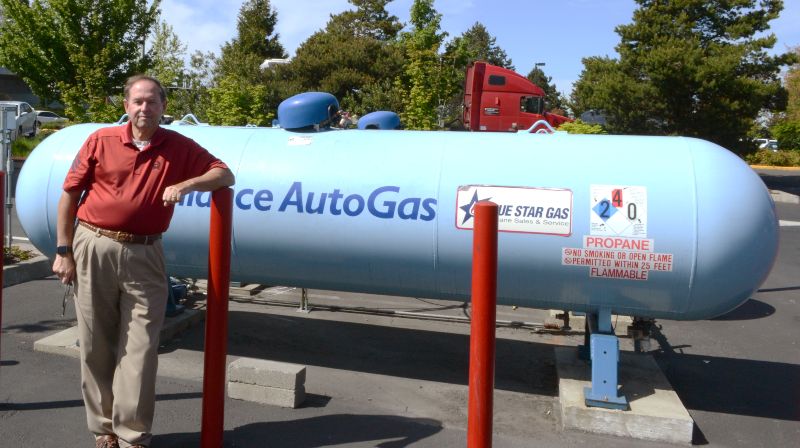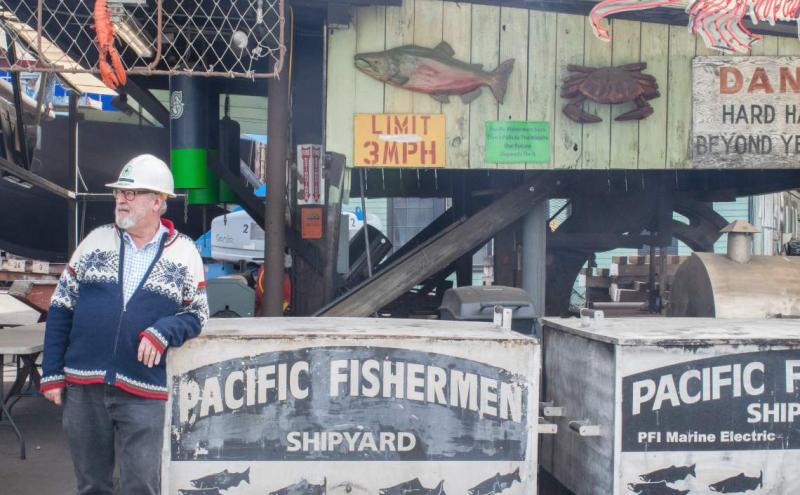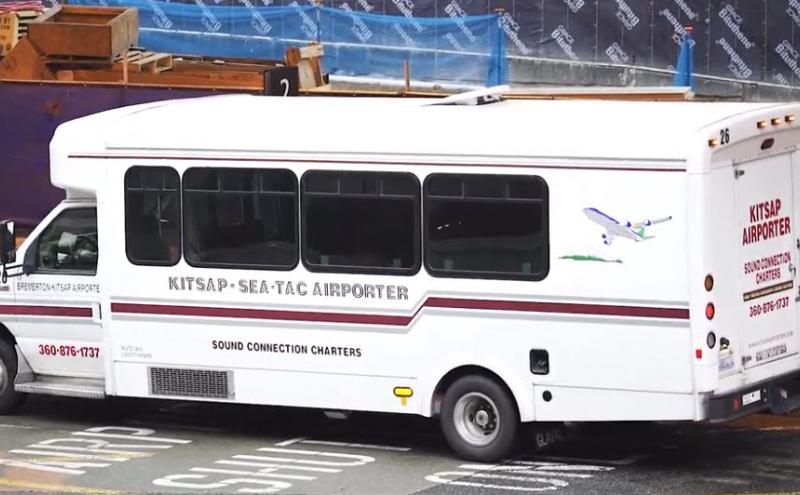When John Solin first saw a need for a convenient transportation option between Whidbey Island and Sea-Tac Airport he looked to the skies.
Solin, a civilian pilot, had a plan to start his own airline to get people to from Whidbey Island to Sea-Tac Airport more easily; when that fell through, Solin started exploring other options. In 2003, Solin and business partner Mike Lauver started a shuttle service between Whidbey Island and Sea-Tac Airport to provide an efficient and cost-effective way for Whidbey Island residents to get to the airport.
The shuttle service, called the Whidbey Sea-Tac Shuttle, makes stops along Whidbey Island before boarding the ferry to Mukilteo and driving to Sea-Tac Airport. The ride to Sea-Tac Airport takes two hours and 15 minutes. This was a more efficient option than other shuttle services offered at time, which included a shuttle route from Oak Harbor to Sea-Tac via Mount Vernon.
The shuttle started small — with two vehicles that made four trips a day, carrying nine passengers each. Solin and Lauver operated the vehicles themselves. Over the years, the operation expanded to 15 vehicles with 11 trips a day leaving every two hours.
Last year the Whidbey-Sea-Tac Shuttle drove 70,000 passengers a total of 690,000 miles, with each shuttle driving around 50,000 miles per year. Solin realized the impact of his business on carbon emissions, so starting in 2017, he decided to make a change. He started working with Blue Star Gas, a propane fuel distribution company, to begin the process of converting his shuttle fleet from gasoline to propane fuel. Benefits of propane fuel include reduced emissions and substantial fuel cost savings, and the Environmental Protection Agency recognizes propane as a clean alternative fuel.

“Propane costs significantly less than gas, and going green is important to us, to the Port, and to our passengers,” Solin said.
By converting nine of its 15 passenger buses from gasoline to propane fuel, Whidbey-Sea-Tac Shuttle reduced carbon emissions by 164 tonnes in 2018. Whidbey Sea-Tac Shuttle’s propane-powered buses used 52,969 gallons to travel 350,000 miles shuttling passengers to and from the airport. Due to these efforts, Whidbey-Sea-Tac Shuttle was awarded a 2018 Port of Seattle Environmental Excellence Award in the Small Business — Environmental Performance category.
“It was the right timing to do it,” Solin said. He said the return on investment for conversion costs took about one year, without factoring in any extra incentives or rebates that are available for propane conversions. On average, propane autogas costs at least $1.50 less per gallon than gasoline, and the implementation costs are significantly less than for other alternative fuel options. Solin estimated that he’s saving $6,000 to $7,000 a year per vehicle in fuel costs.
“It’s a win-win for everybody,” Solin said. “Everybody should be thinking about the environment. In our situation, this is the only thing we can do. We’re running vehicles that are putting out tons of exhaust, as are all transportation.”
He said his business has a responsibility to do its part to lessen that impact.
“We are not a huge part of the activity at Sea-Tac but it all adds up; we’re doing our part to make things right and make things a little greener,” he said.











